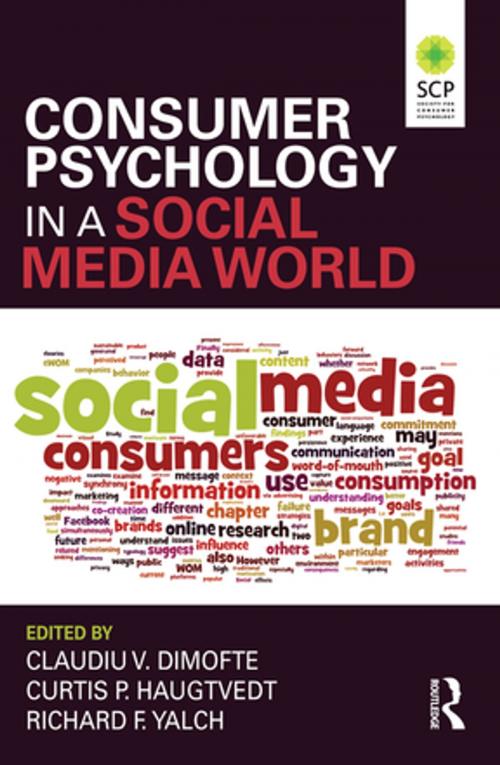Consumer Psychology in a Social Media World
Business & Finance, Marketing & Sales, Consumer Behaviour, Advertising & Promotion| Author: | ISBN: | 9781317502067 | |
| Publisher: | Taylor and Francis | Publication: | September 16, 2015 |
| Imprint: | Routledge | Language: | English |
| Author: | |
| ISBN: | 9781317502067 |
| Publisher: | Taylor and Francis |
| Publication: | September 16, 2015 |
| Imprint: | Routledge |
| Language: | English |
Consumer Psychology in a Social Media World seeks to illustrate the relevance of consumer psychology theory and research to understanding the social media world that has rapidly become a key component in the social and economic lives of most individuals. Despite the rapid and widespread adoption of social media by consumers, research focused on individuals’ use thereof and its implications for organizations and society has been limited and published in scattered outlets. This has made it difficult for those trying to get either a quick introduction or an in-depth understanding of the associated issues to locate relevant scientific-based information.
The book is organized into five broad sections. The first presents a summary overview of social media, including a historical and cultural perspective. The second section is focused on social media as a modern form of word of mouth, always considered the most impactful on consumers. It also touches upon a motivational explanation for why social media has such a strong and broad appeal. Section three addresses the impact that consumers’ switch to social media as a preferred channel has had on marketers’ branding and promotional efforts, as well as the ways in which consumer involvement can be maintained through this process. Section four takes a methodological perspective on the topic of social media, assessing ways in which big data and consumer research are influenced by novel ways of gathering consumer feedback and gauging consumer sentiment. Finally, section five looks at some consumer welfare and public policy implications, including privacy and disadvantaged consumer concerns.
Consumer Psychology in a Social Media World will appeal to those who are involved in creating, managing, and evaluating products used in social media communications. As seen in recent financial and business market successes (e.g., Facebook, Twitter, LinkedIn, Instagram, Pinterest, WhatsApp, etc.), businesses focused on facilitating social media are part of the fastest growing and most valuable sector of today’s economy.
Consumer Psychology in a Social Media World seeks to illustrate the relevance of consumer psychology theory and research to understanding the social media world that has rapidly become a key component in the social and economic lives of most individuals. Despite the rapid and widespread adoption of social media by consumers, research focused on individuals’ use thereof and its implications for organizations and society has been limited and published in scattered outlets. This has made it difficult for those trying to get either a quick introduction or an in-depth understanding of the associated issues to locate relevant scientific-based information.
The book is organized into five broad sections. The first presents a summary overview of social media, including a historical and cultural perspective. The second section is focused on social media as a modern form of word of mouth, always considered the most impactful on consumers. It also touches upon a motivational explanation for why social media has such a strong and broad appeal. Section three addresses the impact that consumers’ switch to social media as a preferred channel has had on marketers’ branding and promotional efforts, as well as the ways in which consumer involvement can be maintained through this process. Section four takes a methodological perspective on the topic of social media, assessing ways in which big data and consumer research are influenced by novel ways of gathering consumer feedback and gauging consumer sentiment. Finally, section five looks at some consumer welfare and public policy implications, including privacy and disadvantaged consumer concerns.
Consumer Psychology in a Social Media World will appeal to those who are involved in creating, managing, and evaluating products used in social media communications. As seen in recent financial and business market successes (e.g., Facebook, Twitter, LinkedIn, Instagram, Pinterest, WhatsApp, etc.), businesses focused on facilitating social media are part of the fastest growing and most valuable sector of today’s economy.















